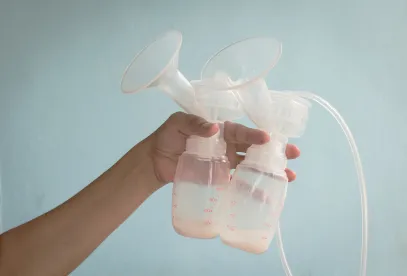On December 29, 2022, through the Fiscal Year 2023 Omnibus Spending Bill, President Biden signed into law the Pregnant Workers Fairness Act (“PWFA”) and the Providing Urgent Maternal Protections for Nursing Mothers Act (“PUMP Act”). Both bills had stalled in the Senate since 2021 so employers may have missed the last-minute negotiations that brought these bills into law.
PWFA
The PWFA, modeled after the American Disabilities Act (“ADA”), goes into effect on June 29, 2023. It requires employers to give reasonable accommodations to pregnant workers and applicants. Pregnant employees or applicants must be considered a “qualified” even if they cannot perform essential functions of the position for temporary period, the essential functions could be performed within the near future, and the inability to perform the essential functions can be reasonably accommodated.
Employers familiar with the ADA and its reasonable accommodation requirements should review carefully the PWFA accommodation requirements. For example, under the PWFA, an employee’s medical restrictions need not constitute a disability as defined by the ADA. Additionally, employers cannot:
-
Require a qualified employee to take paid or unpaid leave if a reasonable
accommodation can be provided. -
Retaliate against any qualified employee for requesting or using reasonable
accommodations.
The EEOC will administer the PWFA.
PUMP Act
The PUMP Act, which became effective December 29, 2022, amends the Fair Labor Standards Act (“FLSA”) to require employers to provide reasonable break time for all employees, including exempt employees, to express breast milk as needed. (Note that the enforcement provisions under the PUMP Act will go into effect late Spring 2023.) Although Break Time for Nursing Mothers passed in 2010, it covered only non-exempt employees. Similar to the existing law, the PUMP Act covered employers must provide a reasonable break time for employees to express breast milk for 1 year after a child’s birth. Employers also must provide a space, other than a bathroom, that is shielded from view and free from intrusion from coworkers and the public. Generally, for non-exempt employees, the break time is not considered hours worked if the employee is completely relieved from duty during the entire break.
Employers with fewer than 50 employees may be exempt from the PUMP Act if compliance would constitute an undue hardship – but employers should be aware that undue hardship may be difficult to establish.
You can view the signed legislation here. PWFA is referred in Division II and the Pump Act is
referred in Division KK.



 />i
/>i
